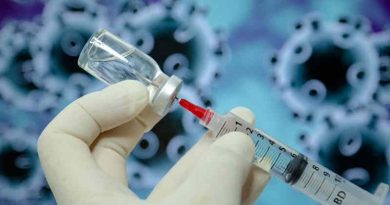Europe Holds Debate on Safety and Side Effects of Covid Vaccines

Members quizzed experts on the authorisation process for updated vaccines, on the role of vaccination certificates, and on the safety and side effects of existing vaccines.
Members of the Environment, Public Health and Food Safety Committee of the European Parliament debated on Monday (March 15) with experts over the efficacy of vaccines against mutations of the Covid-19 virus.
Representatives from the European Medicines Agency (EMA), the European Centre for Disease Prevention and Control (ECDC) and the World Health Organisation (WHO) updated MEPs on the state of play of existing Covid-19 variants. They shared information regarding how effective authorised vaccines are against different variants, and discussed global challenges and the need for a global coordinated response to addressing variants.
MEPs expressed their concerns regarding fast-spreading variants, especially given the vaccination rate across the EU remains lower than expected. They lamented the lack of data available on the efficacy of administered vaccines. Certain member states have a low or no capacity to analyse virus samples (“genomic sequencing”), many MEPs said, which means the spread of variants and their impact cannot be adequately monitored. Members also quizzed the experts on the authorisation process for updated vaccines, on the role of vaccination certificates, and on the safety and side effects of existing vaccines.
During the meeting, Commission Deputy Director-General for Health Pierre Delsaux presented the Commission’s communication on the HERA Incubator, a project designed to monitor variants, exchange data and cooperate on adapting vaccines. The Commission has proposed to amend the current regulatory procedure in order to allow for Covid-19 vaccines that are adapted to new variants to be approved more quickly.
All viruses – including SARS-CoV-2, the virus that causes Covid-19 – evolve over time. These changes are called “mutations”. A virus with one or more new mutations is referred to as a “variant” of the original virus. The ECDC’s latest risk assessment states that variants are more easily transmitted and more severe. Existing licensed Covid-19 vaccines may therefore be only partially effective or significantly less effective against a variant. For this reason, the risk associated with further spread of Covid-19 is currently assessed as “high to very high”.
According to the WHO, Covid-19 vaccines currently being developed or already approved are expected to provide at least some protection against new variants of the virus. In the event that any of these vaccines prove to be less effective against one or more variants, the composition of the vaccines can be adapted to protect against these variants.




